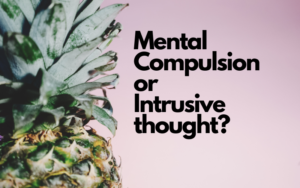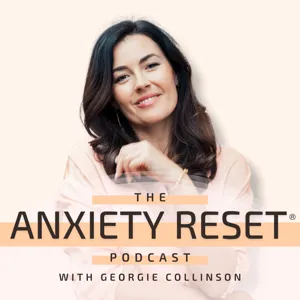Podcast Summary
Connecting with neighbors for community resilience and support: Building strong community connections can bring social support and preparedness in uncertain times. Engage with neighbors and work together to create a more resilient community.
Building strong community connections can bring both social support and preparedness in uncertain times. Neighbor to Neighbor, a California volunteer network, emphasizes the importance of connecting with neighbors and working together to create a more resilient community. Meanwhile, financial empowerment and mindset work, as discussed by State Farm and DJ Dramos, can lead to greater freedom and success. Additionally, research suggests that beliefs in demons, despite religious affiliations, may negatively impact mental health. These topics, along with the scientific and psychological aspects of demons, have been explored in various episodes of Stuff to Blow Your Mind. Whether it's through community engagement, financial growth, or understanding the complexities of the supernatural, these ideas can contribute to a more well-rounded and empowered perspective on life.
Exploring the Fascination with Demons in Mythologies and Folklore: Speakers discussed their experiences with demons in various mythologies and shared about a demon named Zagan from The Lesser Key of Solomon, who commands 33 legions and has unique abilities.
The discussion revolved around the fascination with demons and their presence in various mythologies and folklore. The speakers shared their personal experiences and the demons they have explored in their writing projects. They mentioned several demons from different cultures, some of which have detailed entries on their website. The speaker then introduced a demon named Zagan from The Lesser Key of Solomon, which is a grimoire believed to contain knowledge passed on by King Solomon. Zagan is a king and president among the 72 demons in the Ars Goetia, and he commands 33 legions. He has the power to make men witty, turn wine into water and water into wine, and turn blood into wine. The speakers also suggested that these demons could make for interesting "demon trading cards" due to their unique abilities and illustrations.
A Powerful Demon with Unique Abilities: Zagan, a demon from the Lesser Key of Solomon, was valued by wizards for his ability to turn blood into wine and metals into coins.
The demon Zagan, as described in the Lesser Key of Solomon, is a powerful entity with unique abilities, including turning blood into wine and transforming metals into coins. Despite his potential for harm, such as turning blood into wine which could be fatal, he was seen as a valuable ally for wizards due to his ability to create coins from metals. This relationship between the wizard and Zagan was akin to a project manager and a subcontractor, where the wizard would summon Zagan to turn raw materials into coins, which they could then use for their own purposes. The Lesser Key of Solomon, which details various demons and their abilities, can be seen as a sort of "official handbook to the Marvel Universe" for wizards. While Zagan is an example of a demon under control, there are other demons that are less manageable. The text also mentions the oni, a Japanese demon, as a potential subject for further exploration.
Japanese Mythology: Oni and Gaki: Japanese mythology features diverse supernatural entities like Oni and Gaki, with Oni being earthly demons countered by religious practices and Gaki embodying fear of death, influencing media and culture.
Japanese mythology is rich with various supernatural entities, two of which are the Oni and the Gaki. The Oni, also known as terrestrial oni, are shape-shifting demons that bring misfortune, spread diseases, and can be driven away through religious practices or conversion to Buddhism. On the other hand, the Gaki are demons from hell that embody the fear of death and drag dying souls down to the underworld. Both of these entities have influenced Japanese folklore and have been depicted in various forms of media, including Dungeons and Dragons and Japanese horror films. The Oni, in particular, represents an earthly demon that spreads misfortune and can be countered through religious practices, which is a significant aspect of the study we'll be discussing today. Additionally, there are other demons or evil spirits, such as the Kappa, that exist in Japanese folklore and can be defeated through specific actions. Overall, these entities showcase the depth and diversity of Japanese mythology and its influence on various aspects of culture.
Belief in demons linked to lower mental health: Belief in demons can negatively impact mental health among young adults, making it a significant negative predictor of mental health.
Belief in demons, which is held by a surprising number of people in the United States according to statistics, can negatively impact mental health. The study "Demonic Influence: The Negative Mental Health Effects of Belief in Demons" by Fan Ho Nai Ni and Daniel VA Olsen from Purdue University's Department of Sociology, indicates that belief in demons is one of the strongest negative predictors of mental health among young adults. The study also clarified that lowered mental health does not necessarily lead to a greater belief in demons, but belief in demons can lead to lowered mental health. The researchers tackled the possibility that it could be the other way around and found evidence that belief in demons can indeed negatively impact mental health. This study has broader implications for mental health in general as it shows how beliefs, even if they are not grounded in reality, can impact our well-being.
Personifying threats as creatures or monsters for coping mechanism: Throughout history, humans have explained the unexplainable by creating mythological beings as a way to cope with anxiety and fear, providing a sense of control and predictability.
Throughout history, humans have often explained the unexplainable by personifying threats as creatures or monsters, creating a system to deal with them and finding solace in the predictability of these entities. This is evident in various mythologies, including demonology, which offered cultural explanations for the unexplainable. By turning invisible and unpredictable threats into tangible and defeatable entities, people found a way to cope with anxiety and fear. However, as we will explore further, this belief in the existence of malicious magical creatures can lead to negative beliefs and impact our mental health in unhealthy ways. In essence, the creation of mythological beings served as a way for humans to make sense of the world around them and find a sense of control in the face of uncertainty.
Impact of Religious Beliefs on Mental Health: Belief in a loving God and attending church positively affects mental health, while worrying about prayer frequency, belief in a punishing god, and lack of belief in an afterlife negatively impact mental health. Individual beliefs construct unique mental health outcomes.
Religious beliefs can have both positive and negative impacts on mental health. The belief in a loving God and the importance of religion in one's life have been linked to positive mental associations, including attending church, prayer, and a secure relationship with God. However, worrying about the frequency of prayer, belief in a punishing god, and not believing in an afterlife have been linked to negative mental health outcomes. The first study to specifically examine the negative associations of demonic belief found that it can negatively impact mental health using a structural equation modeling system and the National Study of Youth and Religion. Ultimately, each individual constructs their own cultural safety net based on their faith and attention to its details, and the impact on mental health depends on the specific beliefs held.
Belief in demons linked to mental health issues: An evolutionary threat assessment system in the brain can heighten anxiety and lead to mental health issues for those with a more cynical worldview and heightened belief in demons
The belief in demons can be a predictor of future mental health issues, according to a recent study. This is due to an evolutionary threat assessment system (ETAS) in the human brain, which is always on and can result in anxiety and OCD when no clear threat exists. This system can be thought of as a mental security system, with various sensors that can be influenced by an individual's personal worldview and level of trust in others. The study suggests that those with a more cynical worldview may have more sensitive "mental sensors," leading to heightened anxiety and potential mental health issues. It's important to note that having mental health struggles does not necessarily mean one will develop a belief in demons, but rather that the belief in demons could be a sign of underlying mental health vulnerabilities.
Our perception of the world impacts Emotional Threat Assessment Systems: A cynical worldview can lower ETAS thresholds, while an equitable one raises them. Environments can influence which worldview dominates, and being aware of this can promote healthier reactions.
Our perception of the world and the risks it poses can significantly impact our Emotional Threat Assessment Systems (ETAS). According to the discussion, a cynical worldview can lower the threshold for triggering ETAS, leading to potentially dysfunctional responses. Conversely, an equitable worldview can raise the threshold, promoting healthier reactions. People often juggle these contrasting viewpoints, and our environments can influence which one dominates. For instance, moving from a city to a rural area can challenge our assumptions about strangers and safety. It's essential to remember that everyone experiences different worlds, and our beliefs shape our interactions with them. In some religious contexts, sickness may be attributed to demonic forces, which can keep individuals in a constant state of high alert. Ultimately, being aware of the role our worldview plays in shaping our ETAS can help us respond more effectively to our environments.
Impact of Belief in Demons on Mental Health during Young Adulthood: Belief in demons during young adulthood, a common phenomenon, may influence mental health, particularly in relation to depression.
Belief in supernatural evil, such as demons, may have an impact on mental health, particularly during young adulthood. Researchers Nya and Olsen focused on the National Study of Youth and Religion (NSYR) due to its high-quality panel design, detailed religion questions, and coverage of significant changes in religiosity and mental health during this period. Young adulthood is a time of increased stress and potential religious belief changes. The authors found that belief in demons was most common during adolescence and young adulthood, and it could be considered one of the edible or beneficial religious ideas on a person's "lunch tray" of beliefs. However, it would be ideal for future research to include more extensive data on depression in relation to belief in supernatural evil.
Understanding the Challenges of Young Adulthood: Coping Mechanisms and Mental Health: Studies show that young adults aged 18-25 have higher rates of mental illness and that belief in a loving God can provide comfort and security, while belief in evil supernatural beings can increase anxiety and stress.
The transition to young adulthood is marked by a rapid decline in religiosity and an increase in mental health issues. According to studies, 30% of young adults aged 18 to 25 reported having had mental illness in the last year, compared to 22% for those aged 26 to 49, and 14% for those aged 50 or older. Coping mechanisms, such as religion, can help individuals deal with these challenges during this period. However, the belief in evil supernatural beings can make the world seem unpredictable and insecure, leading to anxiety and stress. In contrast, belief in a loving God can make the world seem predictable and secure, providing a sense of comfort and security. The studies cited suggest that religion can serve as an effective coping strategy during this time for many people. Overall, the research highlights the importance of understanding the unique challenges faced by young adults and the role of coping mechanisms, including religion, in helping them navigate this critical life stage.
Belief in demons impacts mental health more than vice versa: The study reveals that belief in demons is a stronger predictor of declining mental health than mental health affecting belief in demons
The researchers found that belief in demons and mental health are interconnected, with belief in demons being a stronger predictor of declining mental health than mental health having an effect on belief in demons. The study, which used a SEM model and preexisting data, aimed to improve upon previous research by considering mental health items such as depression, sadness, loneliness, misunderstanding, purposelessness, and social invisibility, and took into account demographic measures and positive benefits of religion. The findings suggest that belief in demons has a negative impact on mental health, and this relationship cannot be explained by reverse causal influences. It's worth noting that mental health is a complex construct, and the study has its limitations. Despite the cognitive dissonance that may exist between belief in a Christian God and belief in demons, the study suggests that belief in demons is a significant predictor of mental health.
Coexistence of religious beliefs and interpretations: People can hold multiple interpretations of religious beliefs and choose which ones positively impact mental health and worldview.
Religious beliefs, including the belief in demons or supernatural forces, can coexist with other beliefs and interpretations in the human mind. This can lead to cognitive dissonance and questioning of faith. However, evidence suggests that individuals often hold multiple interpretations of the same thing, and it's up to each person to decide what beliefs and interpretations to keep or discard based on their personal experiences and beliefs. The idea is to create an ideal edit of one's religious faith, keeping only the elements that have a positive effect on mental health and worldview. This approach allows for self-care and avoiding unnecessary unhappiness or dysfunction. The struggle between fundamentalism and hypocrisy in religion can be seen as a metaphor for the lunch tray scenario, where individuals selectively choose what beliefs and lessons to keep or discard based on their personal needs and experiences.
Religious beliefs and mental health: Beliefs in spiritual warfare, or demonic forces, can impact mental health negatively, particularly in young adults, but more research is needed to fully understand the relationship.
The details and beliefs within religious texts, such as the Book of Revelation, can significantly impact individuals' perceptions of the world and their mental health. The study found that beliefs in spiritual warfare, or the existence of demonic forces, can coexist with the belief in a loving god. However, these beliefs can also lead to negative mental health outcomes, particularly in young adults. The authors noted limitations in their study, including the need for broader measures of mental health and the lack of data on older adults and international populations. Ultimately, the study highlights the importance of understanding how religious beliefs and practices can shape individuals' experiences and interactions with the world.
Beliefs in demons and mental health: Beliefs in demons can influence mental health, raising questions about the role of good and evil entities in religious worldviews and the motivations behind good behavior.
Beliefs in demons and the supernatural can significantly impact an individual's mental health. This was a topic explored in a podcast discussion, where the hosts shared their personal experiences and invited listeners to share theirs. The hosts questioned why belief in demons is a strong predictor of future mental health changes and asked if it's essential to believe in both good and evil entities to maintain a religious worldview. The conversation also touched on the philosophical question of whether people behave good because of rewards or due to fear of supernatural consequences. The hosts encouraged listeners to engage with the topic further by writing in or connecting on social media. Additionally, they promoted Neighbor to Neighbor, a volunteer network aimed at building stronger communities, and Visible, a wireless company offering affordable, transparent plans.
NASCAR Entertainment: Visible, MRN, Xumo Play, and Iheart Radio: Visible offers NASCAR data management, MRN provides live NASCAR coverage, Xumo Play offers free streaming with 350+ channels, and Iheart Radio provides music channels without sign-ups.
Visible and The Motor Racing Network (MRN) offer different forms of entertainment for NASCAR fans. Visible is a data management platform with a NASCAR-themed plan, while MRN provides live coverage of NASCAR Cup, Xfinity, and Craftsman Truck Series Racing. On the other hand, Xumo Play is a free streaming platform where you can find endless entertainment with over 350 live channels, movies, and full TV series. No sign-ups, logins, or accounts are required. Additionally, Iheart Radio offers music channels from various genres, including the nineties and hip hop, without any hassle. So, whether you're into NASCAR or just looking for something to stream, these platforms cater to different preferences.




 Hello there
Hello there 

